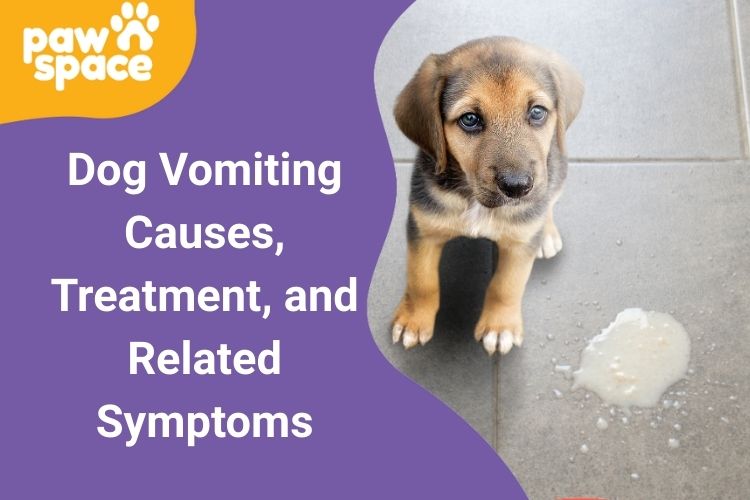Moving to another nation is an exhilarating milestone, but for owners of pets, the endeavor is all the more formidable. Tricking your pet into adapting to moving easily, securely, and lawfully across borders is a task of infinitesimal care and foresight. From vaccinations and paperwork to airline bookings and quarantine procedures, what might appear to be a smooth transition becomes complex. International pet moving, however, is quite possible with the right instruction and planning.Moving Your Pet to Another Country ? This is the ultimate guide for relocating your pet overseas, and why PawSpace is a reliable international pet relocation companion.
Of course, moves can be infinitely complex, especially when they are international. Each country has its own regulations and costs related to moving dogs across its borders. Generally speaking, the regulations are much stricter, more complex, and more costly when it comes to moving dogs than when moving cats.

Table of Contents
Toggle- What Is International Pet Relocation?
- Step-by-Step Pet Abroad Relocation Guide
- 1. Destination Requirements Research
- 2. Microchip and Vaccinations
- 3. Health Certificate
- 4. Import and Export Permits
- 5. Select the Appropriate Means of Transit
- 6. Travel Preparation Day
- Universal Problems and the Path to Survive
- Quarantine Regulations
- Airline Restrictions
- Document Errors
- Cost
- Why You Should Choose PawSpace for International Pet Relocation
- Conclusion
- FAQs
- 1. When should I prepare to move my pet internationally?
- 2. Can I take my pet with me in the cabin of the plane?
- 3. What kind of crate do I bring?
- 4. Is quarantine global?
- 5. What if my pet documents are not all signed?
What Is International Pet Relocation?
International pet relocation is taking pets from one country to another according to the importing country’s requirements. It includes health checking, vaccination, microchipping, travel papers, and mode of transport selection. The procedure can take weeks according to the importing country or even months.
Pet owners can handle the arrangements themselves or hire a relocation company specialising in pet transfers. The latter is costly but convenient and guarantees strict international standards compliance.
Step-by-Step Pet Abroad Relocation Guide
1. Destination Requirements Research
Pet import regulations vary by country. These can be:
- Forced quarantine periods
- Breeding prohibitions
- Rabies-free documentation certification
- Microchip compatibility (ISO 11784/11785)
- Specific vaccinations and titer tests
- Import permits and health certificates
Start making plans for your research no less than six months prior to your move. Check the official government website of your destination country or talk to a licensed pet relocation expert to prevent delay or hassle.
2. Microchip and Vaccinations
Many countries demand that animals are microchipped with a 15-digit ISO-compliant chip. This will enable your pet to be traced and associated with their medical history.
Vaccination, specifically rabies, is a requirement. Distemper, parvovirus, and leptospirosis immunisation is also useful in certain countries. There is waiting time after vaccination too before your pet qualifies for travel.
3. Health Certificate
Your animal must be examined by a qualified animal health professional and certified as healthy enough to travel. The certificate must be issued by an authorised government agency like:
- USDA (United States)
- DEFRA (United Kingdom)
- AQCS (India)
Make sure the certificate is completed within the specified period of time, usually seven to ten days prior to travel.
4. Import and Export Permits
Import and export licenses are necessary for several nations. They ensure your pet has passed all legal and medical checks for entry and exit. Time limits are variable according to the nation, so submit well in advance to save time.
5. Select the Appropriate Means of Transit
Pets travel in one of three ways:
- In-cabin, for pets up to airline weight limits
- As checked baggage, with the owner
- As manifest freight, unaccompanied and temperature-stabilised
Follow airline policy strictly. Some will not allow pet flights in bad weather or ban certain breeds, most notably snub-nosed dogs and cats. Direct flights are optimal to avoid stress and the layovers that come with them.
Use an IATA-approved pet travel crate that has enough room for your pet to stand, turn around, and lie down comfortably. Personalise the crate with your name and phone number and add familiar things like toys or blankets.
6. Travel Preparation Day
On travel day:
- Give your pet a light meal four to six hours prior to departure
- Do not sedate your pet except on the advice of a veterinarian
- Provide water to your pet
- Bring only the bare minimum such as food, medicine, papers, and comfort items
- Be at the airport early for procedures to be completed
- Acclimatisation and Arrival
Upon arrival:
- Turn in all the documents to customs personnel
- Subject yourself and your pet to any mandatory quarantine or medical checkup
- Get your pet registered in the host location
- Get an appointment with a vet for a checkup in the host country
- Monitor your pet for illness or signs of stress
Animals will acclimatise eventually to new environments. Stay with the known for the animal and soothe it through settling in.
Universal Problems and the Path to Survive
Quarantine Regulations
Quarantine exists in a few nations for a couple of weeks to some months. It is stressful and costly. Educate yourself about quarantine facilities and acclimatise your pet physically and mentally.
Airline Restrictions
Some Schnauzer breeds such as bulldogs and Persian cats are prohibited due to respiratory risks. Always inquire about breed limits prior to booking a reservation.

Document Errors
Missing documents or lost documents may lead to refusal of entry or compulsory repatriation. Duplicate all documents and hard and soft copies.
Cost
Pet international relocation incurs a cost. Fees may encompass:
- Airline charges
- Health certificates and inoculations
- Microchipping
- Travel crate
- Permits and endorsements
- Quarantine fees
- Get accurate quotes from airlines and moving companies in advance to plan accordingly.
Why You Should Choose PawSpace for International Pet Relocation
PawSpace is one of the finest Indian-based pet relocation and care service providers offering door-to-door service for international pet relocation. Our experts make it a cakewalk and ensure your pet’s stress-free, compliance-friendly, and secure relocation experience.
Expertise in International Regulations
PawSpace is well-versed with the import and export rules of over 50 countries. Our knowledgeable staff handles intricate paperwork, vaccination protocols, and government clearance with accuracy, guaranteeing full destination compliance.
Veterinary Coordination
PawSpace coordinates with professional veterinarians to book health checks, vaccinations, and microchipping. We also coordinate scheduling the government-approved health certificates and titer testing where required.
Personalised Travel Planning
Every pet is different. PawSpace accommodates travel arrangements according to your pet’s size, breed, health, and personality. We like non-stop flying and use climate-controlled cargo facilities for stress reduction.
Crate Training and Comfort
PawSpace provides crate training for acclimating pets to travel crates. Traveling becomes less stressful and the trip is smoother.
Real-Time Updates and Support
PawSpace provides regular updates on your pet’s status during transit. Our support team is available around the clock to answer questions and handle emergencies.
Transparent Pricing
PawSpace offers clear, itemised quotes with no hidden fees. You will know exactly what to expect, making it easier to plan your budget.
Compassionate Care
To start with, PawSpace treats your pet like family. They are taken care of by pet lovers who understand the emotional responsibility of pet re-location and take it seriously so that your pet remains welcome and secure.
Conclusion
Exporting your pet abroad is a complicated procedure, but with proper planning and the assistance of professionals, it can be done without inconvenience and safely. Whether you prefer to arrange for it yourself or opt to use a relocation company’s services, preparation is key.
If you seek a reliable and compassionate partner, PawSpace delivers the experience, clarity, and commitment pet owners need. Their end-to-end approach ensures ease and assures your pet arrives at its new home healthy and happy.
FAQs
1. When should I prepare to move my pet internationally?
Reserve at least six months in advance to accommodate vaccination schedules, permit schedules, and travel plans.
2. Can I take my pet with me in the cabin of the plane?
Some small pets are allowed in-cabin space-permitting depending on airline policy, size, and destination. Large creatures typically ship freight.
3. What kind of crate do I bring?
Use an IATA-approved crate where your pet has room to stand, turn, and lie down. Compliant carriers won’t pass with airlines.
4. Is quarantine global?
No. Quarantine is mandatory in some states, but direct entry is allowed with good papers. Check the law of your destination at all times.
5. What if my pet documents are not all signed?
Your pet will be refused entry, quarantined, or returned to the country of origin. Check twice and make photocopies.
















